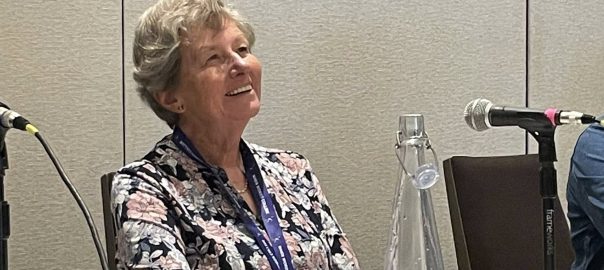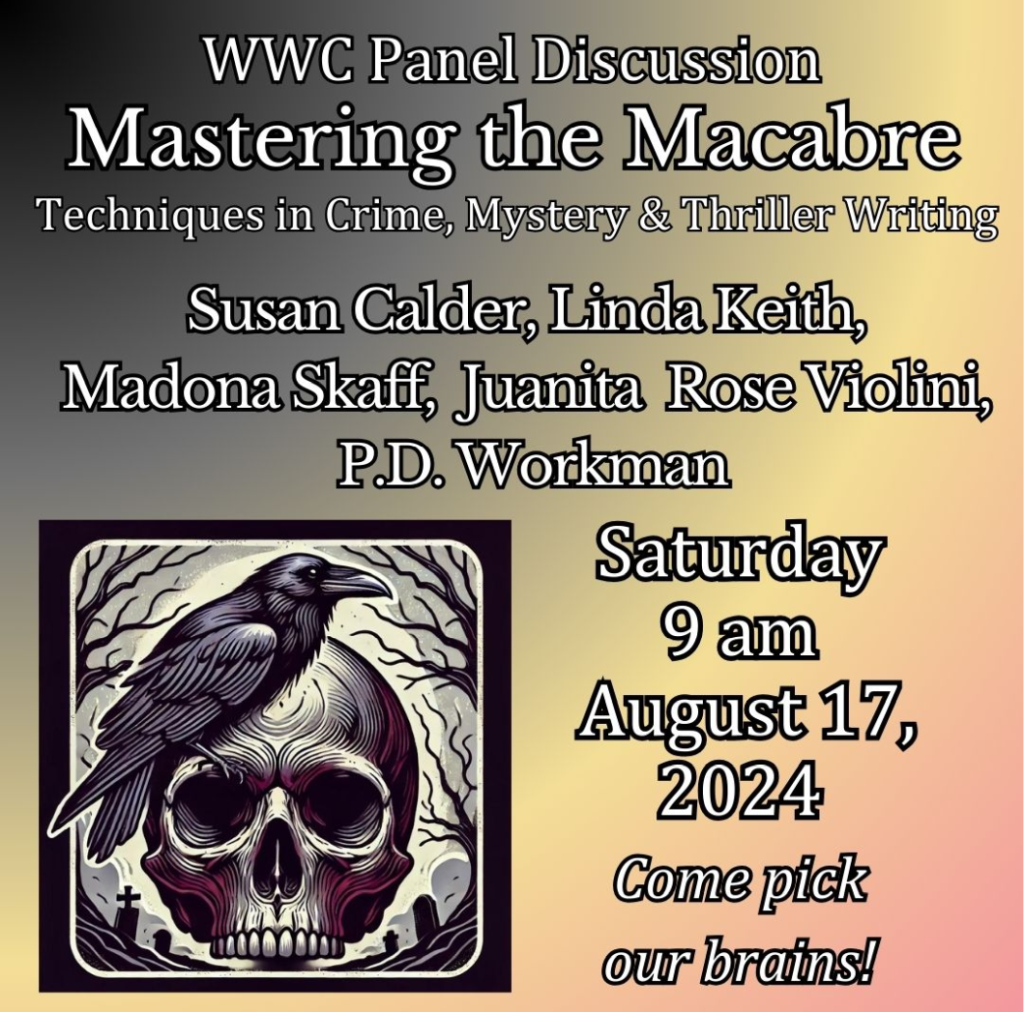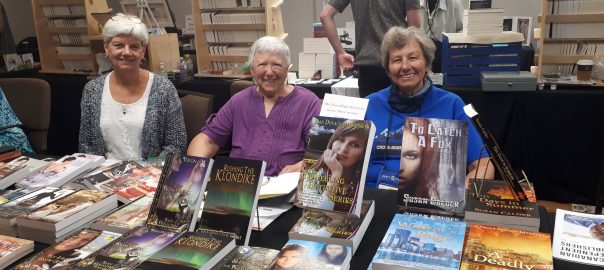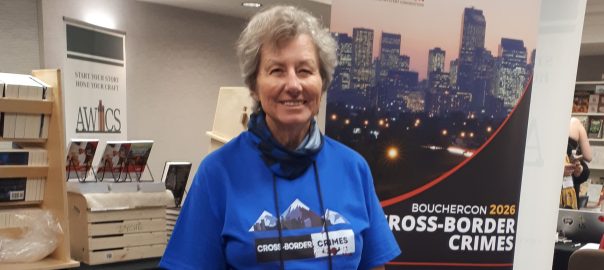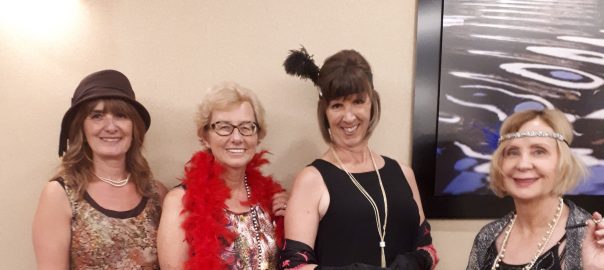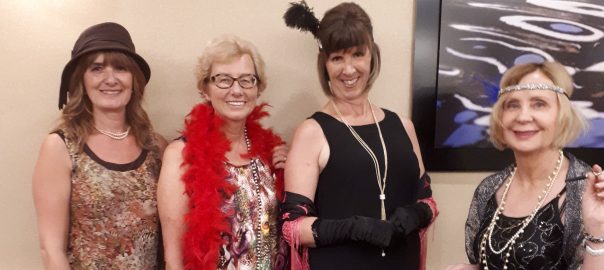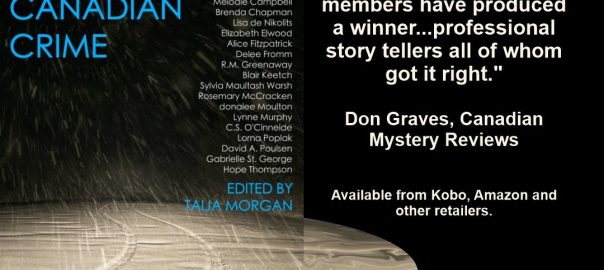At this year’s When Words Collide Festival for Readers and Writers, https://www.whenwordscollide.org/ I participated in a panel titled Historical Fact and Fiction: what can and can’t be changed. Moderator Lori Hahnel began by asking how and where to find accurate historical facts. My fellow panelists, John Corry and Donna D. Conrad, talked of the challenges of historical research for novels set centuries ago. John’s novel about British author Geoffrey Chaucer takes place in the 1300s; Donna’s retelling of the story of Mary Magdalene in the first century.
Donna said she used sources from different countries and religious perspectives to get the most accurate spin on Mary Magdalene. John noted that he had to be careful about dates in his research, since most countries changed from the Julian to the Gregorian calendar after his novel’s time period.
My historical novel, A Killer Whisky, set in 1918 during World War One, felt modern in comparison, and I had more research tools available. While I found that reading historical fiction and non-fiction was useful, I learned the most from material published at the time of my novel. I signed up for a one-week free subscription to Newspapers.com and devoured the headlines of the day as well as ads for groceries, houses, jobs, and more. Online, I combed through the 1,000+ page 1918 Sears catalogue for images and descriptions of fashion and other consumer goods. Novels and memoirs published in the early twentieth century provided details of daily life, attitudes of the times, and words and expressions used. To avoid language anachronism, I suggested that the panel audience check out Google Ngram Viewer https://books.google.com/ngrams/. You plug in a word or phrase and a graph tracks its usage in books from 1800 to 2022. For instance, the word “groovy” barely registered before 1960, when it peaked. Then it dropped and hit a higher peak this century, perhaps from people writing about the swinging sixties. My WWI characters would never say “groovy.”
Unless I try my hand at writing alternate history.
Lori asked what we thought of television shows like Bridgerton, a Netflix series based on Julia Quinn’s novels set in early 19th century London. Main characters include wealthy and aristocratic people of colour who are totally accepted in high society.
I said I liked Bridgerton. Everyone watching knows the world wasn’t like that then or even now, but Bridgerton makes you think, what if this alternate world were true? Donna said she enjoys these kinds of shows but cringes at the historical inaccuracy.
Lori brought up her second concern about historical fiction: the abundance of WWII novels. Is the market saturated? Will people ever get tired of reading about that war?
John and Donna thought the trend would continue because writers are constantly finding new angles about the war. I suggested that WWII endures because it is arguably the last heroic war and it is still close to many of us whose parents or grandparents fought in or lived through the war. Perhaps, interest will wane for the next generations, until writers rediscover and reinterpret that momentous time.
As to the panel topic question: what can and can’t be changed? We all agreed you can’t change major known facts. I wouldn’t change key dates about WWI, even though it would probably work better for my novel-in-progress if the war had started a month earlier. John and Donna said they wouldn’t change dates that Chaucer or Mary Magdalene were known to be in particular locations.
I pointed out that Chaucer and Mary were their novels’ main characters, but it might be okay for me to write a novel set in 14th century York and have Chaucer make a cameo appearance despite no evidence that he’d ever gone there. Small changes like that wouldn’t significantly impact history or my main characters and themes, although I think it’s more interesting to readers if the historical figure really was present. We all like to pick up factual trivia from our reading and history is ripe with interesting tidbits.
My historical novel-in-progress begins in Karlovy Vary (aka Karlsbad), a spa town in Czechia (aka Czech Republic). Somewhere I read that Sigmund Freud, founder of psychoanalysis was in Karlovy Vary at the outbreak of World War One, when my novel takes place. Unfortunately, I’ve lost the reference. (Advice to historical fiction writers: keep your references). The Psychiatric Times confirms that Freud visited Karlsbad more than once for health reasons and I’ll do my best to find my missing reference. But if I can’t, would it be wrong to make him a character in my novel? Freud’s interactions with my fictional characters would be interesting and relevant to the story.

